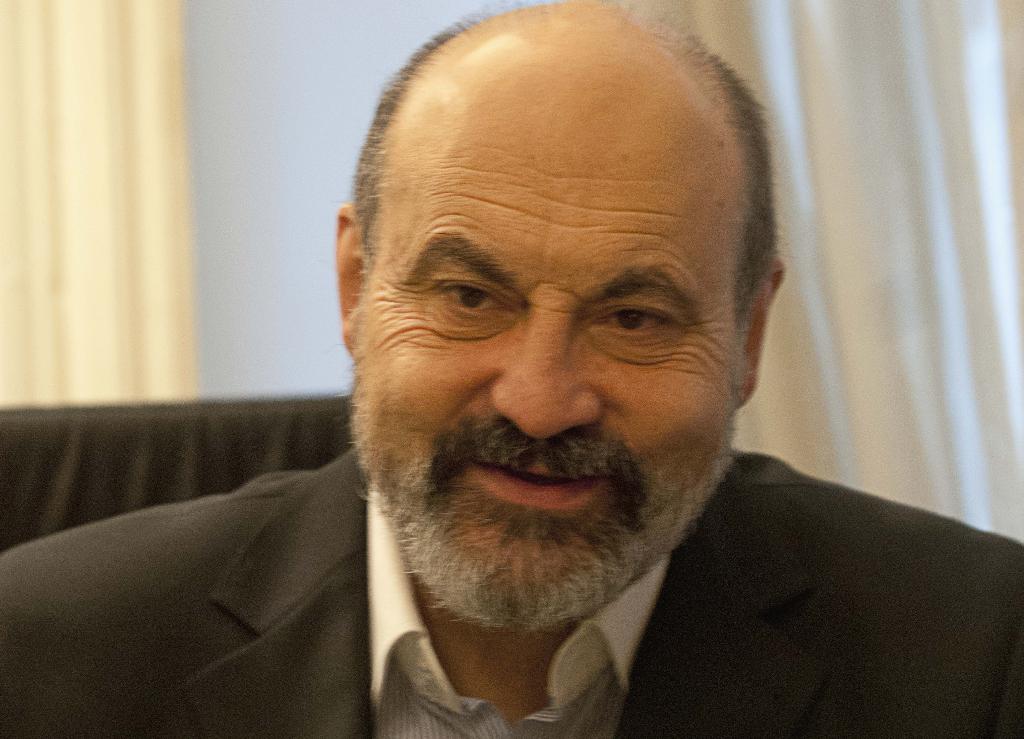Rev Dr D Vincent Twomey provides thetablet.co.uk with an eye witness account of the Pope Emeritus's annual meeting for his former doctoral and post-doctoral students at the Apostolic Palace of Castel Gandolfo
The Czech intellectual, Professor Tomáš Halík (pictured), winner of the Tempelton Prize last year, was guest speaker at this year's annual meeting of the Pope Emeritus’s former doctoral and post-doctoral students.
The original Schülerkreis (established in 1980) were joined by the circle of young scholars of Ratzinger's theology (the Neuer Schülerkreis), under the direction of Cardinal Kurt Koch, President of the Pontifical Council for Promoting Christian Unity. The meetings was moderated by Father Professor Emeritus Stephan O. Horn, S.D.S, former assistant to Professor Ratzinger and now spokesman for the Neuer Schülerkreis.
Monsignor Professor Halik read two papers, the first was entitled: How to speak - or to keep silent - about God today; the second was Love: the altar of the Unknown God.
In his first paper, Professor Halik developed ideas found in his earlier writings about the contemporary drift into atheism. His differentiated analysis, influenced also by his training as a psychotherapist, stressed the positive elements of that widespread - and growing - phenomenon.
But his starting point was what he called the tiredness of contemporary European Christianity and its lack of missionary élan. Drawing on the mystical tradition's so-called negative theology, he highlighted the incomprehensibility of God, which, paradoxically, may be the most important contribution of atheism (including agnosticism) to contemporary Christianity in its present slumbers. At the heart of the (non-militant) atheist's experience of the loss of God, he argued, may well be an intimation of Transcendence.
In the second paper, he developed the experience of love as affirmation of the other. It expresses both the essence of God's love for us and in the worship of the unknown God implicit in every act of authentic love of others. But it also finds that affirmation in every experience of pain that cries for deliverance to an unnamed redeemer.
Each paper was followed by a widely ranging discussion, when, among other things, Halík drew on his earlier writings on the spiritual relationship between Nietzsche and Thérèse of Lisieux. They were contemporaries in time and kindred in spirit. He sees their parallel experience of the “death of God” as offering a corrective to the false certainty about God that often masks the pious platitudes of confessing or ritualized Christians.
Running like a thread though his papers and his responses to the discussion was his conviction that the way forward for both Christians and atheists is a recognition of their common, existential search for the meaning of life - albeit from different perspectives.
With regard to the Church's mission, Halík wants to draw attention to a third group situated between secure and convinced Christians on one side and militant atheists on the other: namely, the humble searchers. The kairos of a "Church-in-siesta", Halík contends, is to accompany them and to be close to them, allowing space for God to act, but also to learn from them.
On Sunday, all the participants travelled from Castel Gandolfo to the German College, Campo Santo, just inside the Vatican, for concelebrated Mass with the Pope Emeritus. Cardinals Schönborn and Koch, Bishops Adoukonou (Benin/Rome) and Hans-Jochen Jaschke (Hamburg), the Abbot of Heiligenkreuz (Vienna Woods) and some 30 priests. Pope Emeritus Benedict preached (without an note) a very beautiful homily on the Gospel of the day about the way the heart is purified though encounter with Jesus Christ, the Word made flesh as mediated by His words. After the Mass, he re-opened the Hall in the College (once the museum) and now named the Pope Benedict XVI Hall.
There he received each of his former students and new students, and exchanged greetings.
I introduced four Irish members of the International Ratzinger Symposium (held annually in the SVD House, Maynooth): Dr Mary McCaughey, Dr Mark Frances McKenna, Dr Mariusz Biliniewicz and Philip Cremin, M.A. Each presented him with copies of their recent publications/theses. I also presented the Pope Emeritus with a copy of the recently published doctoral dissertation on conscience in historical and existential context by my own former doctoral student, Stuart Chalmers (Aberdeen).
Pope Emeritus Benedict XVI appeared to be in good health and in excellent form. A man of deep friendships who enjoys the company of his friends, he seems to blossom each time we meet with him for our annual meeting.
Rev Dr D Vincent Twomey SVD is a professor emeritus of moral theology and a member of the Iona Institute, an Irish Catholic pressure group




 Loading ...
Loading ...
What do you think?
You can post as a subscriber user ...
User comments (0)